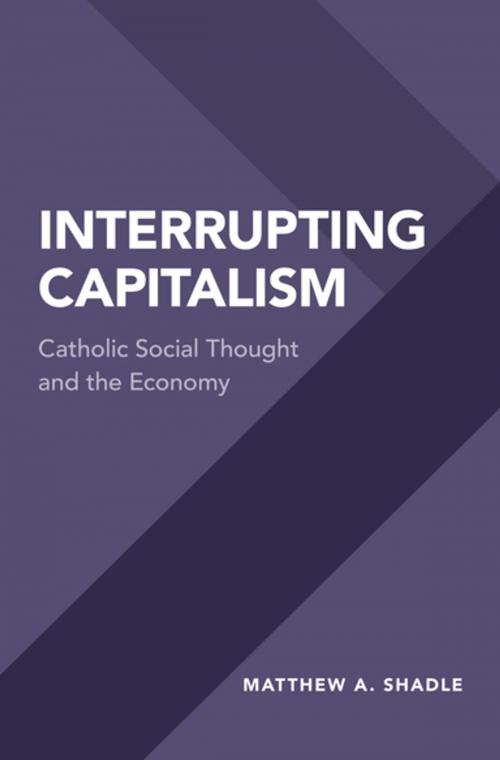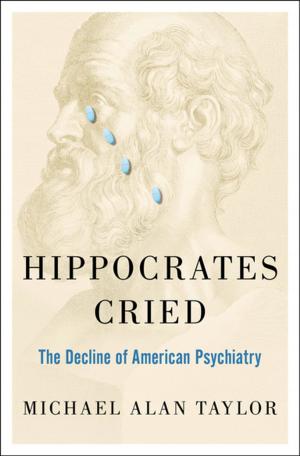Interrupting Capitalism
Catholic Social Thought and the Economy
Nonfiction, Religion & Spirituality, Christianity, Church, Church & State, Denominations, Catholic, Catholicism, Theology| Author: | Matthew A. Shadle | ISBN: | 9780190660154 |
| Publisher: | Oxford University Press | Publication: | June 8, 2018 |
| Imprint: | Oxford University Press | Language: | English |
| Author: | Matthew A. Shadle |
| ISBN: | 9780190660154 |
| Publisher: | Oxford University Press |
| Publication: | June 8, 2018 |
| Imprint: | Oxford University Press |
| Language: | English |
In the decade since the financial crisis of 2008, governments around the world have struggled to develop strategies to stabilize precarious markets, encourage growth, and combat mounting wealth inequality. In the United States, the recovery from that crisis has exacerbated the fears of the working and middle classes and pitted those classes against the wealthy. Although we participate every day in economic life as workers, consumers, employers, or activists, we often experience the economy as a mysterious force that we cannot control, or fully understand. Matthew Shadle argues that Catholics ought to be able to draw on their faith to help navigate and make sense of economic life, but too often the effort to get ahead or just stay afloat drowns out faith's appeal. Interrupting Capitalism proposes a new strategy for Christian economic discipleship. Rather than engage the two theological poles of continuity and rupture, Christians should interrupt capitalism: neither whole-heartedly endorsing global capitalism nor seeking to dismantle it. This means "breaking into" the economy, embracing those aspects that enhance human well-being while transforming the market in a spirit of solidarity. Shadle argues that all three of the dominant theological approaches dealing with economic life-the progressive, neoconservative, and liberationist-are theologies of continuity. A fourth approach, a communitarian one, he believes, can best embody the strategy of interrupting capitalism. The Catholic tradition, including its tradition of social teaching, provides a cultural structure that, along with their own social context, conditions how Catholics think about and engage in economic activity. Drawing on the resources of the tradition, theologians reflect on this activity, giving it a theoretical justification and offering correctives. Both the experience of ordinary Catholics and the work of theologians feed into new articulations of Catholic social teaching. Offering an overview of Catholic thought since the Second World War, Shadle begins with the experience of Catholics in Western Europe at mid-century, moving to Latin America and the United States in the 1970s and 80s, and then concluding with the phenomenon of globalization.
In the decade since the financial crisis of 2008, governments around the world have struggled to develop strategies to stabilize precarious markets, encourage growth, and combat mounting wealth inequality. In the United States, the recovery from that crisis has exacerbated the fears of the working and middle classes and pitted those classes against the wealthy. Although we participate every day in economic life as workers, consumers, employers, or activists, we often experience the economy as a mysterious force that we cannot control, or fully understand. Matthew Shadle argues that Catholics ought to be able to draw on their faith to help navigate and make sense of economic life, but too often the effort to get ahead or just stay afloat drowns out faith's appeal. Interrupting Capitalism proposes a new strategy for Christian economic discipleship. Rather than engage the two theological poles of continuity and rupture, Christians should interrupt capitalism: neither whole-heartedly endorsing global capitalism nor seeking to dismantle it. This means "breaking into" the economy, embracing those aspects that enhance human well-being while transforming the market in a spirit of solidarity. Shadle argues that all three of the dominant theological approaches dealing with economic life-the progressive, neoconservative, and liberationist-are theologies of continuity. A fourth approach, a communitarian one, he believes, can best embody the strategy of interrupting capitalism. The Catholic tradition, including its tradition of social teaching, provides a cultural structure that, along with their own social context, conditions how Catholics think about and engage in economic activity. Drawing on the resources of the tradition, theologians reflect on this activity, giving it a theoretical justification and offering correctives. Both the experience of ordinary Catholics and the work of theologians feed into new articulations of Catholic social teaching. Offering an overview of Catholic thought since the Second World War, Shadle begins with the experience of Catholics in Western Europe at mid-century, moving to Latin America and the United States in the 1970s and 80s, and then concluding with the phenomenon of globalization.















